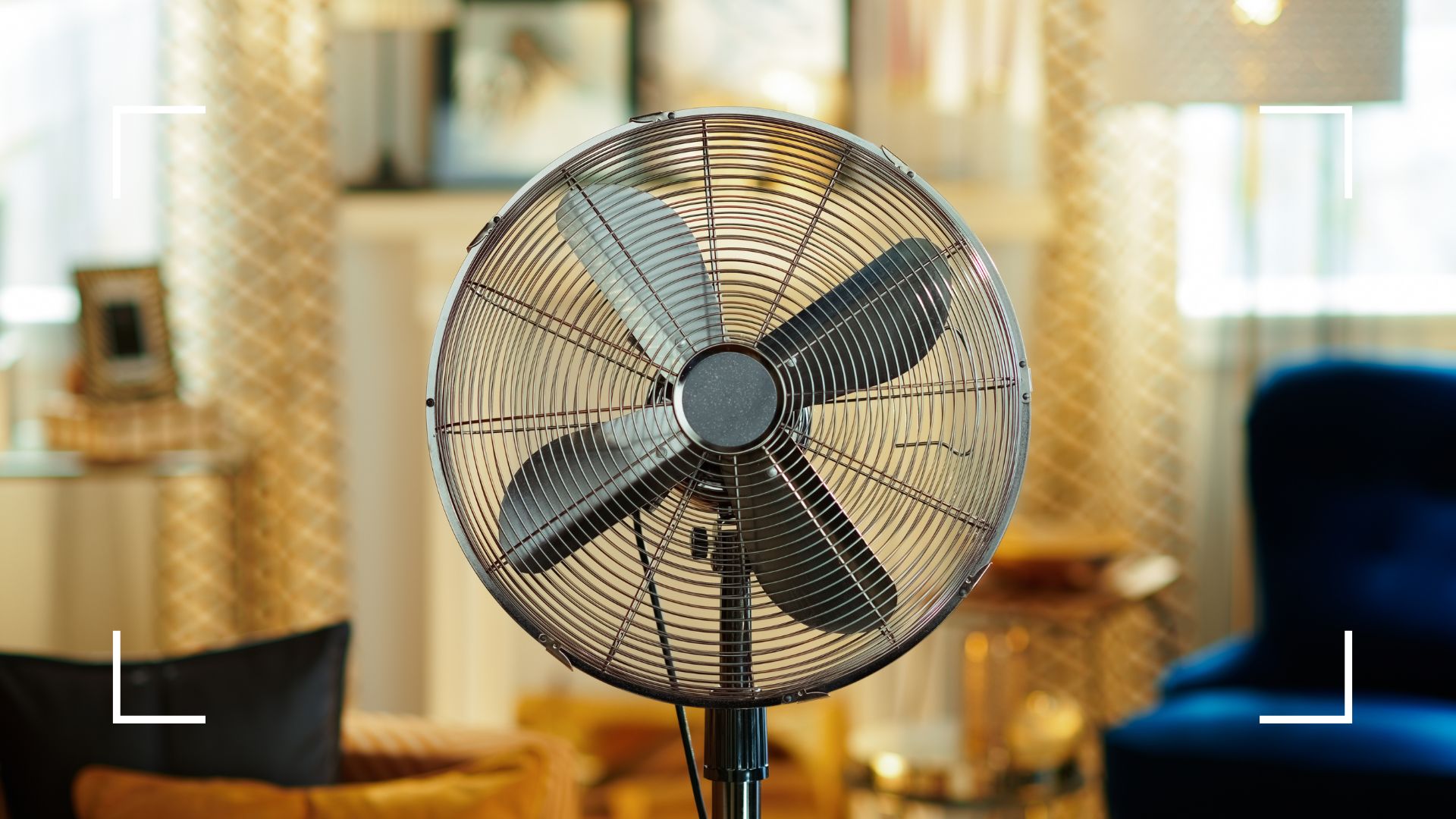
With the warmer weather approaching you may be looking to either invest in a new fan or bring your old reliable one out of storage. But is it worth the added energy costs? How much does it cost to run a fan to stay cool? We put it to the experts.
It's no big secret that fans are one of the best ways to cool down a room without AC, and whilst most of us will rely on them during the summer months there are a few downsides. One of these is the running costs.
But are fans really that expensive to run and does the type of fan you have change their energy usage and cost? We spoke to cooling and energy experts to find out whether your fan will leave you hot and bothered with a hefty energy bill or not.
Is it expensive to run an electric fan?
If you're looking at how to stay cool in the summer, having a fan in your house is one of the easiest and most efficient ways of getting that instant cool relief. However, there is the matter of what it costs to run the machine, especially on extremely hot days when the thought of turning it off will send a shiver down your spine.
"As temperatures rise, consumers often look for ways to cut their bills after a long and cold winter. However, it is possible to cost-effectively cool your household with fans during the summer months," says Andy Kerr, founder of BOXT a heating, cooling and solar panel company.
Andy explains that the average 110w floor fan uses 2.7p worth of energy per hour which translates to 64.8p if you were to run it all days.
He explains, "This would add £20.05 to your monthly energy bills, this price can be lowered if you are strategic with your fan and utilise their strengths."
This is where knowing a few expert fan hacks can come in handy, to improve efficiency while the fan is running. Believe it or not, it's also worth considering how much it costs to run a dehumidifier in summer because it can also help to cool the air.
Are some fans cheaper to run than others?
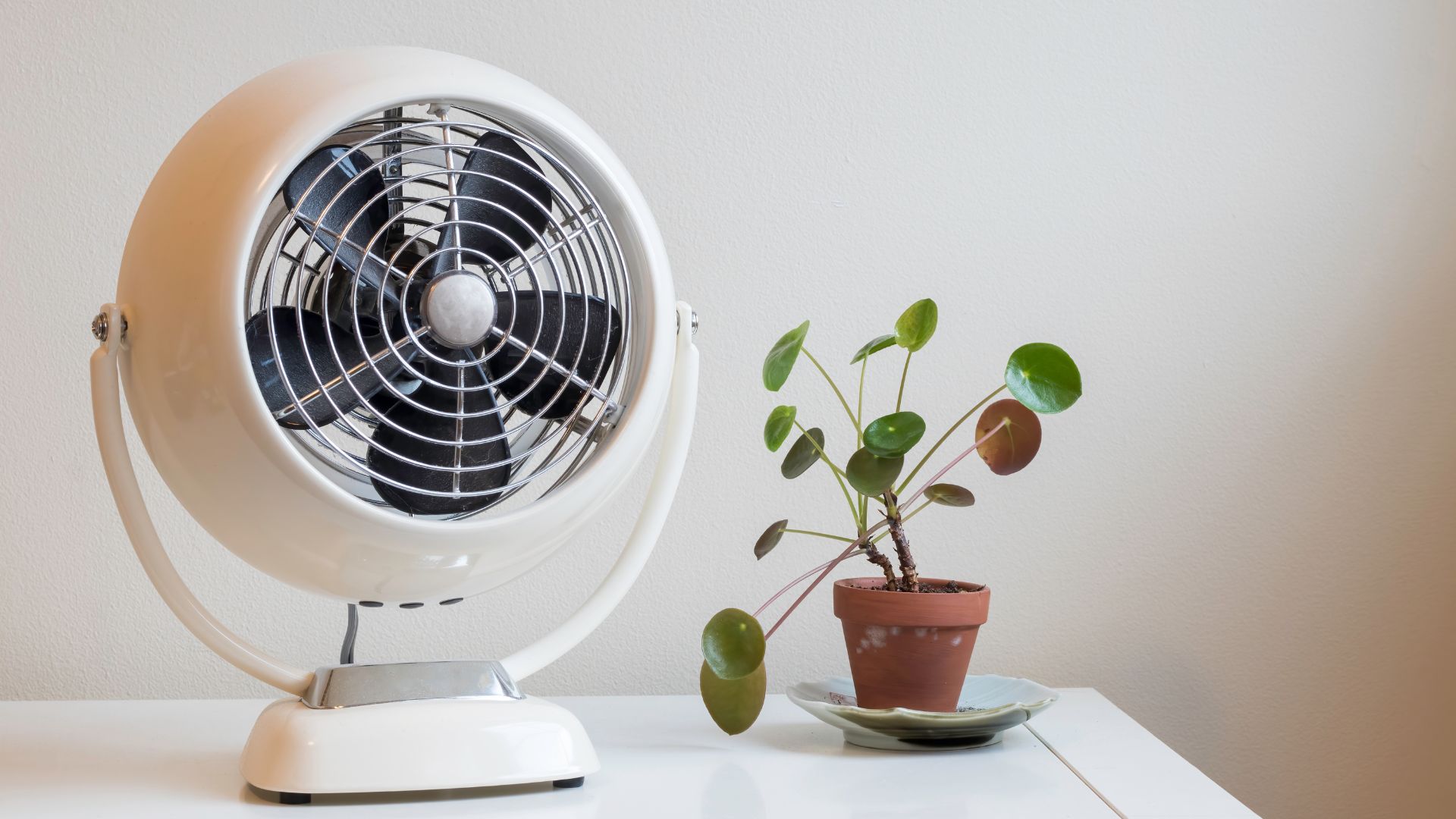
Still not convinced? Luckily some models will be cheaper to run than others, however, if you're struggling with how to keep your bedroom cool you may be more than happy to splurge on a more powerful option.
Andy explains the difference in domestic fan prices, he says, "Box fans consume 0.073 kWh worth of electricity per hour at full speed. With an average electricity price of 24.5p, these fans can cost up to 1.79p per hour. For an eight-hour working day, this would cost 14.32p."
Whereas tower fans, he explains, use 0.0565 kWh on average which should cost around 1.38p per hour to run and should you leave them on all day it'll cost you around 33.12p extra on your energy bill.
"Standing fans are even cheaper as they use up to 0.0425 kWh each hour which is 1.04p and around 8.32p per night."
Different electric fan options
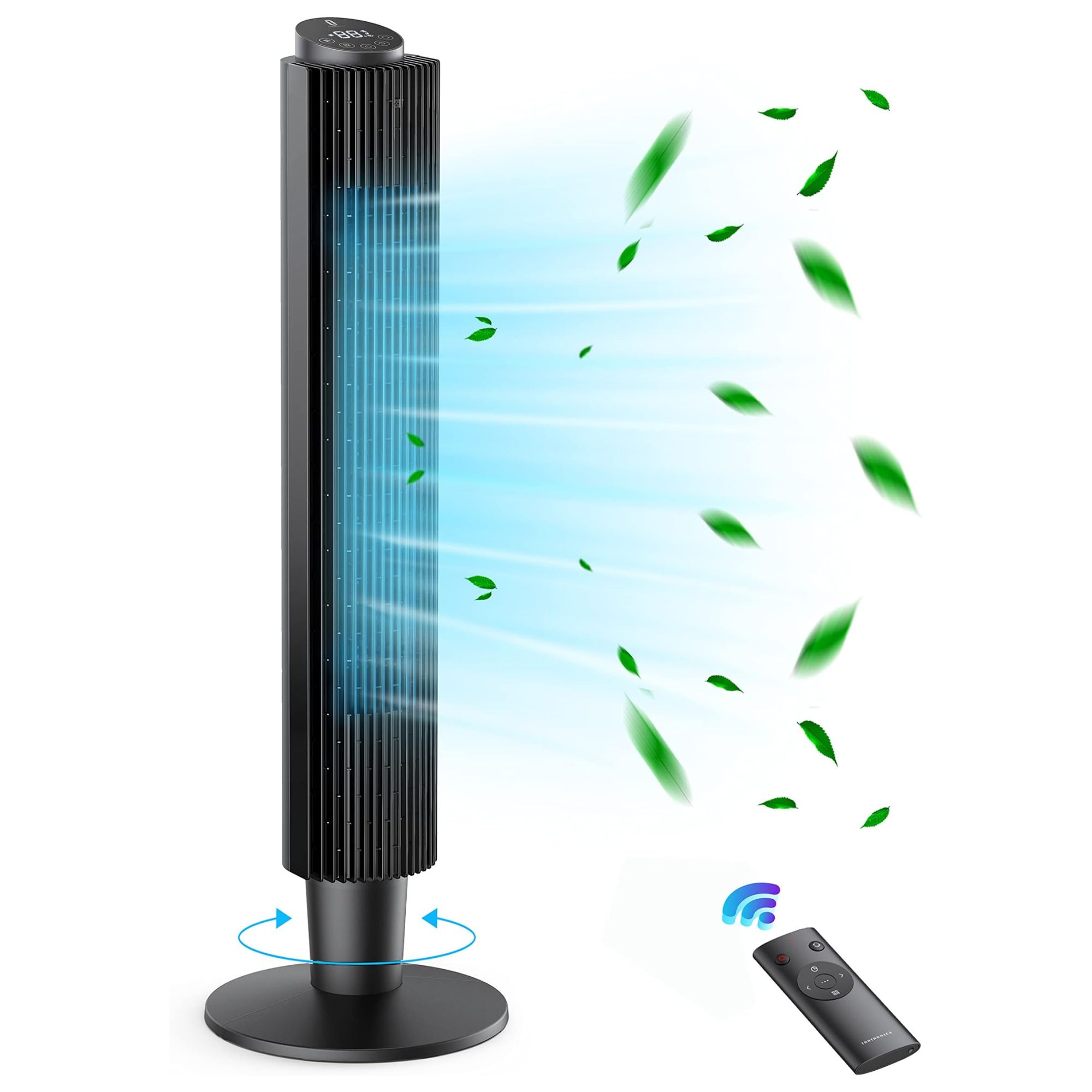
RRP: £89.99 | This tower fan is perfect for bedrooms as it has a quiet cooling mode as well as a sleep mode with a 12-hour timer. With five fan speeds and a 90-degree oscillation, you really can't ask for more from a domestic fan running off 45 watts.
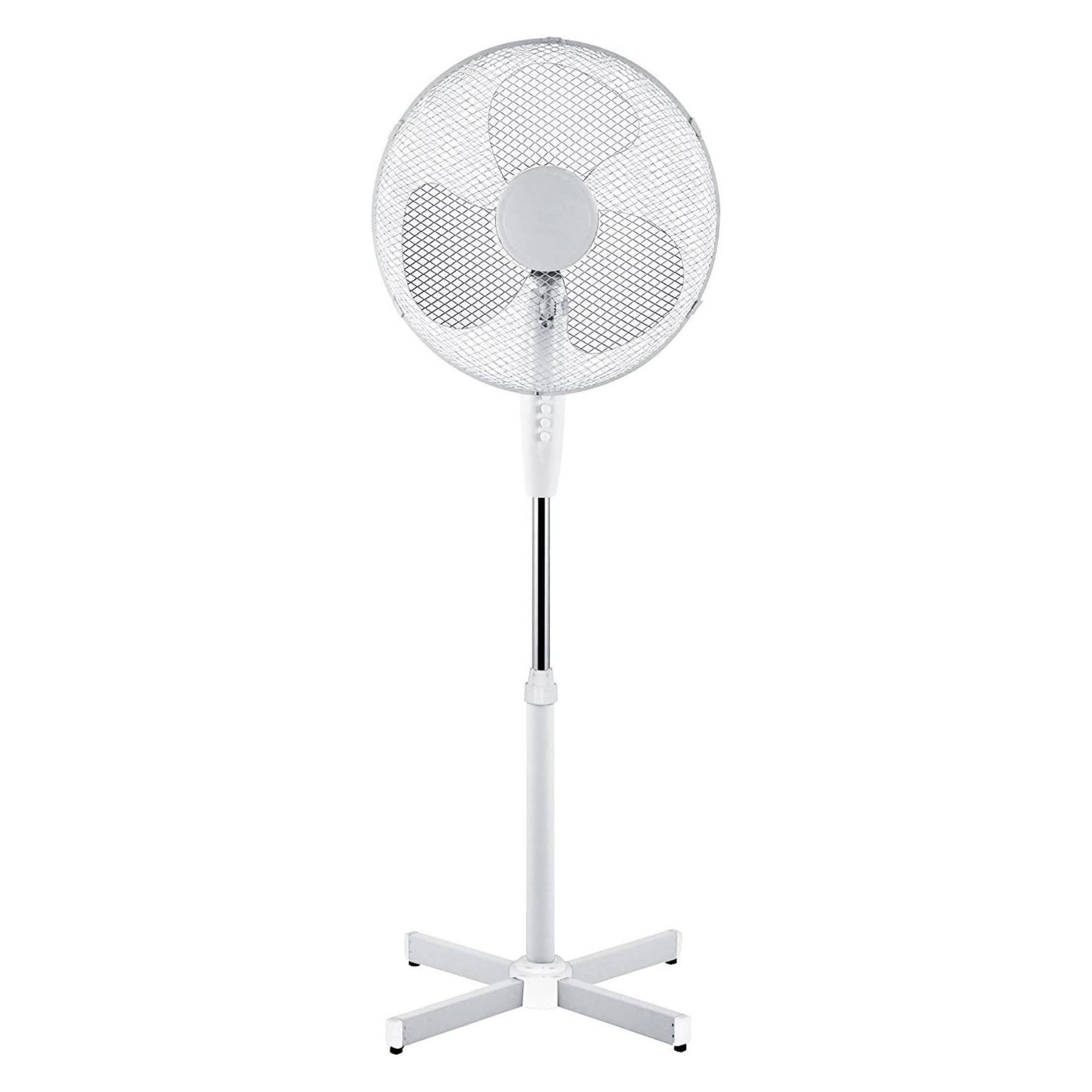
RRP: £16.99 | Looking to keep it simple? This extendable 45-watt floor-standing fan is perfect for doing the job without all the faff of a more complex model. It has a three-speed setting and an easy-to-use button control panel.
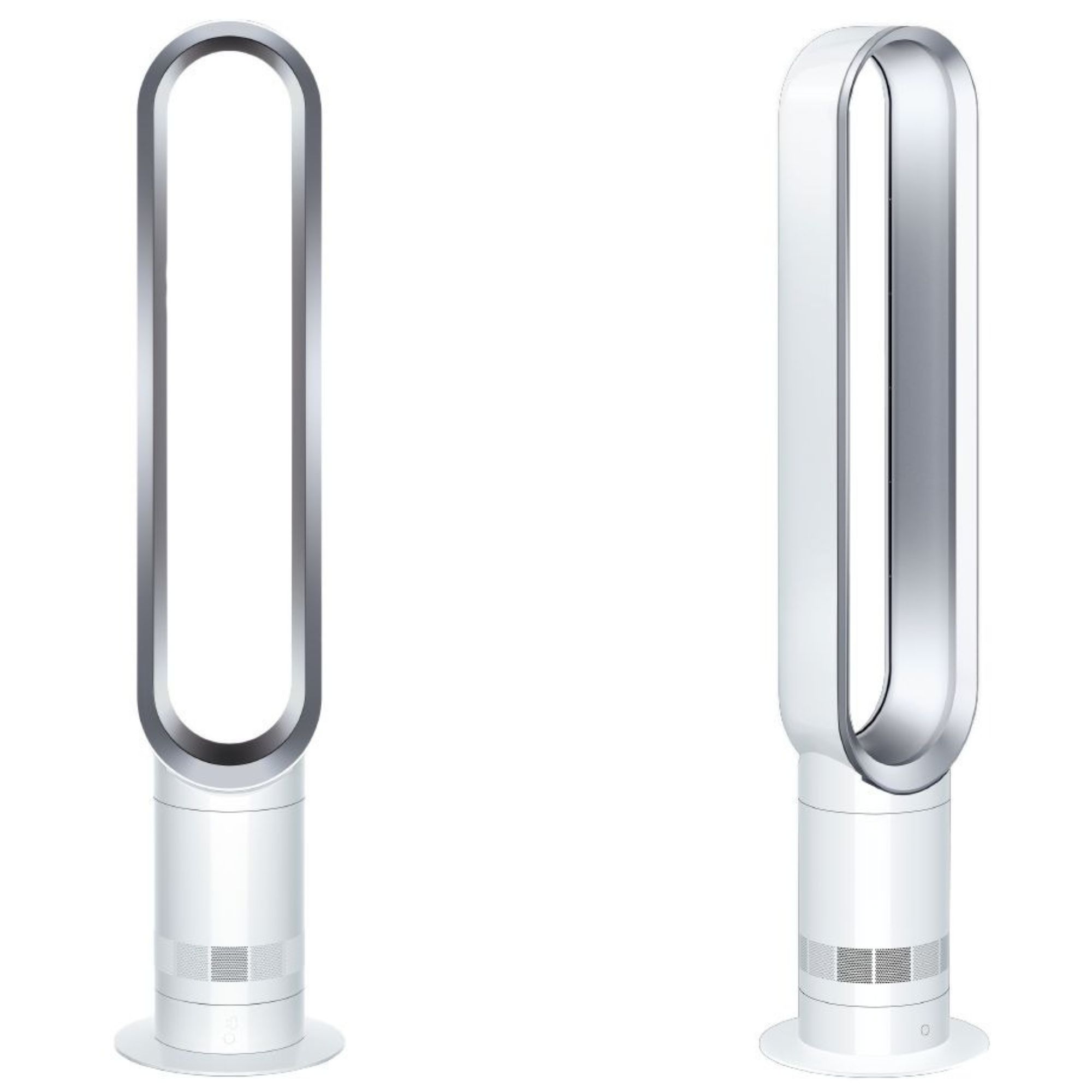
RRP: £349.99 | Should you have a larger space to cool then this powerful 56-watt tower fan from Dyson is the ideal model for that. Its airflow technology is designed to cool spaces fast and with minimal noise making it great for bedrooms or a living room.
FAQs
How can you work out how much a fan will cost you?
If you're still unsure of what type of fan to purchase depending on its cost per use, then you can work out what it will cost before you buy it.
Andy says, "To work out the cost of running a fan, you need to know how much you pay for one unit of energy (1kw), which should be listed on your energy bill. According to Ofgem, the national average price per pence/kWh of electricity is 24.5p."
To work out the kW output of your fan, Andy instructs you to check the fan's wattage which should be on the fan or the instruction manual. Then when you know it, convert the figure into kilowatt-hours but simply dividing the wattage number by 1,000. This will then tell you how much energy the fan uses per hour.
Finally, Andy says, "Multiply these two figures, the cost of a unit of energy by the kW output of your fan, and that will be how much it costs to run your fan per hour.
To work out how much this is costing you per day, you can multiply by how many hours your fan is switched on."
How much does it cost to run a fan all night?
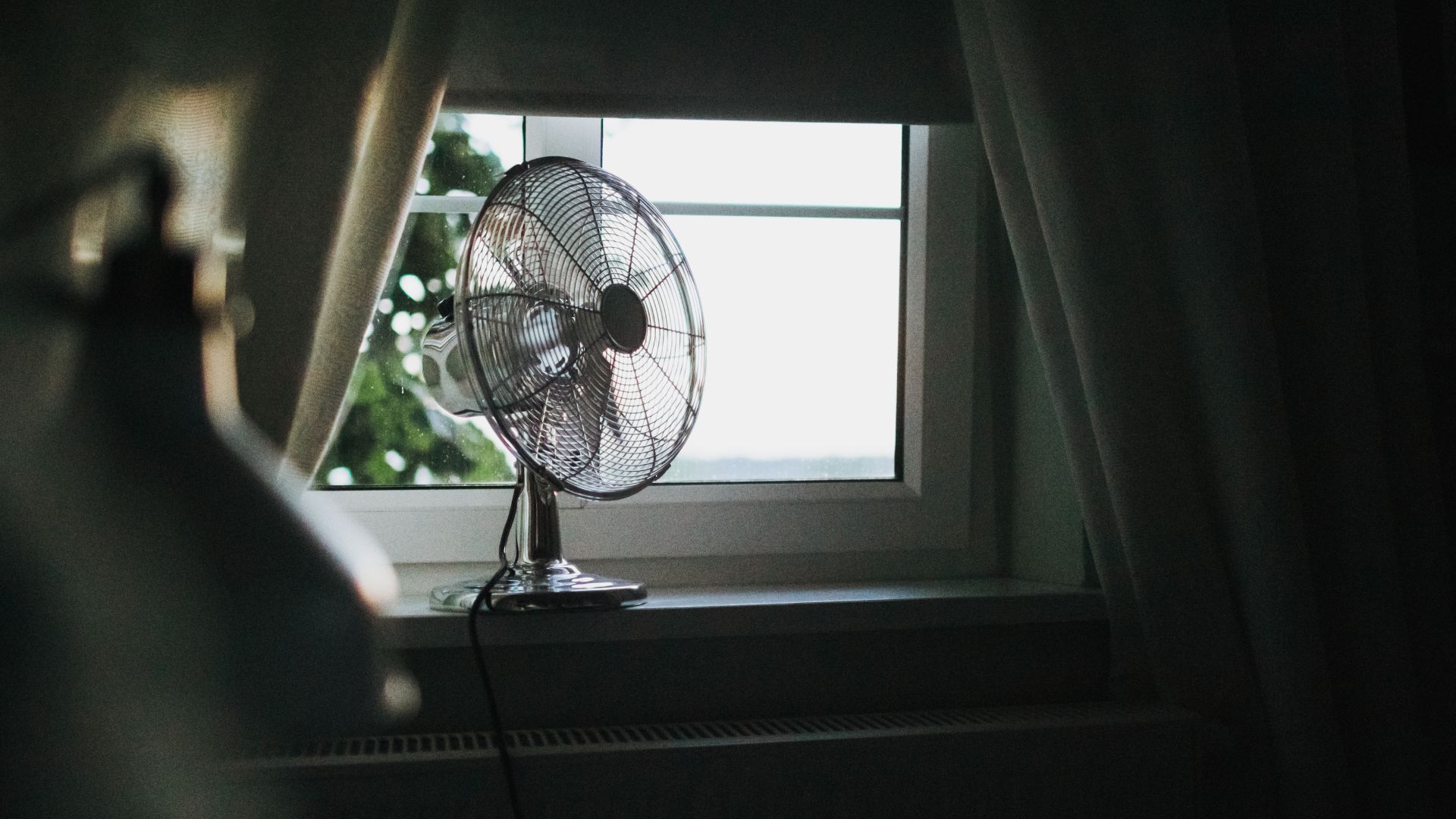
Whether you've invested in one of the best cooling mattresses or not, knowing how to keep your room cool overnight can be a mammoth task in itself.
Should you be looking for a little extra help keeping cool at night, your fan might be the only solution. But like when asking if can you sleep with a dehumidifier on, you might have reservations about leaving a fan on all night – perhaps due to running costs.
Sam Beckett, appliance expert at Beckett's Plumbing & Heating, says, "For a standard fan consuming around 50 watts, running it constantly for 8 hours during the night could cost between £4-8 per month, depending on electricity rates."
If you're trying to keep costs down then Sam recommends using timers or more energy-efficient models for cost-effective nighttime cooling.
Whilst it's all well and good to own a cost-effective fan, it's just as important to know how to clean a fan properly. Using a dirty or dusty fan can significantly affect its ability to function and cool you down, which is just not cool.







